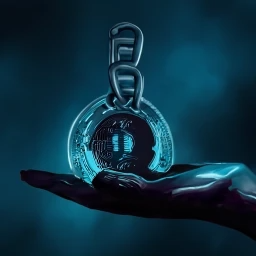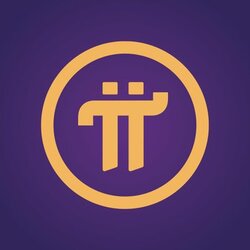Token-Driven Decentralized Science is rapidly transforming how knowledge is produced, validated, and disseminated. Powered by blockchain infrastructure and tokenomics, this emerging movement—often dubbed DeSci—is challenging the traditional structures of academic publishing, funding, and collaboration.
The Rise of Token-Driven Decentralized Science
For decades, scientific research has relied on centralized gatekeepers—universities, funding agencies, and journals. These institutions have traditionally controlled access to research funding, peer-review processes, and data distribution. This centralized model, while functional, has been plagued with inefficiencies such as opaque peer review, long publication delays, restricted access, and geographical inequities.
Token-Driven Decentralized Science introduces a paradigm shift. By integrating blockchain technology and token economies, researchers can now coordinate, fund, and publish scientific projects transparently and globally. Smart contracts ensure trustless collaboration, while tokens act as incentive layers, allowing participants to stake reputation, share ownership, or crowdfund studies.
How Blockchain Infrastructure Enables Decentralized Science
At the heart of this transformation lies the blockchain: a distributed ledger that ensures transparency, immutability, and decentralization. Here’s how these properties empower scientific ecosystems:
- Transparency: All contributions, from data collection to hypothesis testing, are recorded on-chain. This reduces fraud, enhances reproducibility, and allows for real-time auditing.
- Immutability: After being recorded on the blockchain, data remains permanently fixed and cannot be altered.
- Decentralization: No single entity can control the flow of information, minimizing censorship or political interference.
IPFS (InterPlanetary File System) and Arweave serve as decentralized storage solutions for preserving datasets and scientific outputs with resilience and permanence. Smart contracts on platforms like Ethereum or Polygon automate research grants, bounties, and peer-review payments.
Tokenomics in Token-Driven Decentralized Science and Reasearch
One of the most groundbreaking aspects of Token-Driven Decentralized Science is the use of tokens to facilitate coordination and incentivization. Different types of tokens serve various roles:
- Governance Tokens: These provide holders with the ability to actively shape the future of a project by participating in decisions such as research priorities, fund distribution, and policy creation.
- Utility Tokens: Used to access services like data storage, computing resources, or publication platforms.
- Reputation Tokens: Awarded for valuable contributions such as peer review, reproducible code, or innovative hypotheses.
For example, a decentralized research DAO (Decentralized Autonomous Organization) might allocate reputation tokens to members who review grant applications or replicate experiments. Token holders may leverage them to participate in key governance votes or unlock advanced research features.
Examples of Token-Driven Decentralized Science Initiatives
Several initiatives are spearheading the movement toward decentralizing science:
1. VitaDAO
A DAO focused on funding longevity research, VitaDAO allows token holders to vote on projects, contribute data, and co-own intellectual property. The DAO has already funded several age-related studies and collaborates with academic institutions.
2. Molecule
This protocol connects scientists with funding communities using IP-NFTs (Intellectual Property Non-Fungible Tokens). Researchers tokenize their IP, enabling investors or DAOs to fund promising projects and gain exposure to future licensing revenues.
3. LabDAO
LabDAO is creating an open-source network of labs that offer research as a service. By utilizing tokens, researchers gain streamlined access to laboratory services, digital tools, and computational resources on a pay-per-use basis.
These projects demonstrate how token incentives and decentralized governance models can create more agile and inclusive scientific communities.
Incentivizing Open Collaboration of Token-Driven Decentralized Science
Traditional science often punishes openness—researchers may hesitate to share data due to competitive pressures or fear of being scooped. Token-Driven Decentralized Science flips this incentive structure.
In decentralized ecosystems, early sharing of methods, data, and findings can be directly rewarded with tokens. This fosters a more collaborative and less hierarchical environment. Moreover, contributors who might otherwise be excluded from academic institutions—such as independent researchers, citizen scientists, or those in the Global South—can participate meaningfully.
Tokens can also incentivize crucial but often overlooked contributions like data curation, reproducibility testing, or code maintenance. By assigning value to these tasks, the scientific process becomes more holistic and robust.
Redefining Scientific Publishing and Peer Review
Scientific publishing has long been monopolized by a few major publishers. Open access journals have attempted to democratize access, but many still charge high article processing fees, creating new barriers.
Decentralized science introduces novel publishing models:
- On-Chain Publishing: Researchers can publish findings on-chain using timestamped records, ensuring priority and preventing plagiarism.
- Tokenized Peer Review: Reviewers receive tokens for their evaluations. Review quality can be assessed by the community, with better reviews earning more rewards.
- Citable Data NFTs: Research outputs like datasets, code, or protocols can be minted as NFTs, allowing authors to claim ownership, track usage, and earn rewards.
These mechanisms offer not only greater access and speed but also verifiable provenance, empowering a new culture of open knowledge.
Intellectual Property in a Decentralized World
Token-Driven Decentralized Science challenges traditional intellectual property frameworks. Instead of siloed patents controlled by corporations or universities, IP can be fractionalized and governed collectively.
IP-NFTs make it possible to tokenize research assets—like patents, protocols, or datasets—into secure, tradable digital items, enabling shared ownership and easier licensing mechanisms.
DAOs can hold IP-NFTs in collective treasuries and decide licensing terms via governance votes. This model also opens doors to more dynamic licensing: for example, different communities or use cases might pay different token amounts to access or apply the research—thereby aligning monetization with real-world utility.
Overcoming Hurdles in Token-Driven Decentralized Science
Although promising in many respects, Token-Driven Decentralized Science still grapples with a range of practical and philosophical challenges:
- Regulatory Uncertainty: IP-NFTs and token-based funding might be subject to complex legal interpretations.
- Scalability: Public blockchains can be slow or expensive, posing challenges for real-time scientific collaboration.
- Reputation Systems: Decentralized reputation systems are still experimental and may be gamed or manipulated.
- Inclusivity Risks: If token prices become prohibitively expensive, early adopters might control research agendas, replicating existing power structures.
Nevertheless, many of these issues are actively being researched and iterated upon. Layer-2 blockchains, zero-knowledge proofs, and community-based governance protocols are offering potential solutions.
The Future of Token-Driven Scientific Ecosystems
The vision of Token-Driven Decentralized Science is not merely to mirror existing institutions on-chain—it’s to reimagine the scientific method for the 21st century. With global challenges such as pandemics, climate change, and AI ethics requiring unprecedented coordination, a more open, resilient, and agile research model is essential.
Possible future developments include:
- Universal Research Wallets: Scientists might carry digital wallets that store credentials, contributions, and tokens, usable across platforms.
- Automated Research DAOs: DAOs that autonomously fund high-impact projects based on real-world metrics and on-chain data.
- AI + DeSci Synergies: AI systems trained on open datasets could propose hypotheses, run simulations, and even publish results autonomously under human oversight.
These visions require robust infrastructure and community trust, but they signal a bold reimagining of how humanity organizes knowledge creation.
Bridging Traditional Academia and DeSci
Rather than displacing traditional institutions, Token-Driven Decentralized Science may augment them. Universities might integrate blockchain credentials, use DAO funding for pilot studies, or tokenize underutilized patents.
Collaborations between universities and DAOs can foster hybrid models: traditional research rigor combined with decentralized funding, open review, and global participation. Accreditation bodies may eventually recognize on-chain credentials, and journals could adopt smart contract-based submission and peer-review pipelines.
Some forward-thinking universities are already exploring blockchain integrations. MIT, for example, offers digital diplomas on-chain, and other institutions are funding open science grants through DAOs or public blockchains.
Final Thoughts: A Movement Toward Open, Equitable Knowledge
Token-Driven Decentralized Science offers a compelling alternative to the constraints of traditional academia. It allows for faster, fairer, and more global collaboration—fueling a research ecosystem where openness, contribution, and innovation are directly rewarded.
It remains a work in progress, but the foundational principles are sound: decentralization, transparency, equity, and incentive alignment. As technology matures and more stakeholders enter the fold, this movement may redefine not just how science is done, but who gets to do it—and why.
Whether you are a PhD student, a citizen scientist, or a curious supporter of open knowledge, the tools of decentralized science are becoming increasingly accessible. Now is the time to participate, shape, and support this evolving research frontier.



















